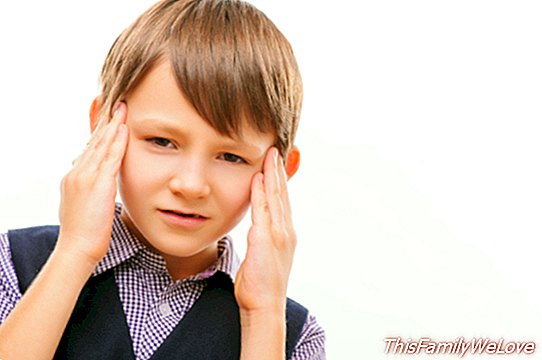Anxiety ... what does it hide?
We have heard many people talk about situations that have caused anxiety, nerves, stress, etc. And almost always from a negative point of view. When they talk about the situations that caused them anxiety, they commented that they could not breathe, that it seemed they were going to have a heart attack, they felt palpitations, muscular tension, etc. It is not strange that with all these experiences we see anxiety as something negative, which incapacitates us, however, what is anxiety really?
What is anxiety?
The anxiety is a programmed warning system to make people survive the dangers they face. This system has until the most primitive beings and thanks to him, to that our ancestors had anxiety they could survive to all type of predators.
Anxiety prepares us to face dangerous situations in two different ways, fighting or fleeing.
Imagine that we walk down the street talking on the phone and we do not realize that a bike is coming in our direction and that we are almost on top of it, at that moment we felt as if something hit us inside, our heart speeds up , the muscles tense up and quickly, without thinking, we step aside. The warning system has been set in motion and the anxiety that the situation has caused us has saved us from being hurled by a bicycle.

We tend to think that having anxiety is a bad thing, but anxiety is not bad, it is a natural and inevitable process that we all have at some time in our lives. When we go to a job interview, when we have an important exam or in any situation that our body detects as potentially dangerous, we enter into a moderate state of alert.
However, if the anxiety is good and helps us face the dangers, why do many people associate anxiety with problems? The difference is in having moderate anxiety before a situation like the one of the bike or to suffer an anxiety disorder.
Having anxiety or having an anxiety disorder are very different thingsIn the case of the disorder, the warning system is set in motion in situations where, in principle, there is no risk or it is very scarce. The problem is not the anxiety we feel, but it is triggered for no apparent reason.
Elements of anxiety
Human behavior is divided into three levels, cognitive level, physiological level and behavioral level as well as anxiety. We will identify each of these levels within the anxiety.
1. Cognitive level: it is all that we think, in anxiety is the perception of danger, the belief that something terrible is going to happen. For example. in the case of the person with fear of driving he will think that he is going to have an accident.
2. Physiological level: are all the sensations we feel, increased heart rate, tremor, muscle tension, heat, sweating, faster breathing, nausea * all these sensations are part of the survival response that sets the alert system in motion and prepare us to fight or fleeing and they are not dangerous even if the person is afraid to notice them.
3. Behavioral level: are all the behaviors that the person performs to avoid discomfort and feel better and eliminate the possibility of the occurrence of the dreaded misfortune, which we psychologists call safety behaviors.
What behaviors do we perform to maintain anxiety?
Many people who suffer a anxiety disorder, they are aware that this disorder limits them, they can not perform the same things they did before, but they feel unable to solve it, what is this disability due to? It is because these people have fallen into the trap of anxiety. Let's explain what it consists of:
A person who is facing a certain situation comes to mind the thought that something terrible is going to happen and begins to notice the physical sensations, the anxiety, before the discomfort that he feels and the negative thoughts that invade him, the person realizes Some behavior that allows you to be safe, that is, carries out some security behavior, the realization of such behavior, provides immediate relief in the short term, however, in the medium term causes anxiety to persist and even increase, since that the association between the dangerous situation and the security behavior becomes stronger.
Let's see an example:
A person who suffers a panic attack begins to notice that the heart is accelerating, notice stiffness in the muscles, feeling dizzy (physical sensations) and thinks that he will die from a heart attack (thought), noticing the sensations he takes an anxiolytic, sits down, rests, and decreases his breathing (security behavior) so that those feelings disappear and the person ends up mistakenly believing that having done all those behaviors is the reason why he has not been attacked to the heart and it has not died.
How can we stop suffering from anxiety?
Breaking the trap of anxiety, for this we must stop carrying out safety behaviors that put us safe and risk, so that we can see how what we think does not happen. If the person who notices how the heart accelerates, feels stiffness in the muscles, feels dizzy and thinks that he is going to die of a heart attack he will not take the anxiolytic and wait to see what happens, he could check how he does not die However, when carrying out the security behavior, he does not prove that his fears are not true.
All this is a complicated process, so the help of a psychologist can benefit a lot, since it will accompany you throughout the process, explaining in detail how the trap of anxiety works in your case and providing you with strategies that will help you Face your fears in a more adaptive way.
Rocío Navarro Psychologist Director of Psicolari, integral psychology




